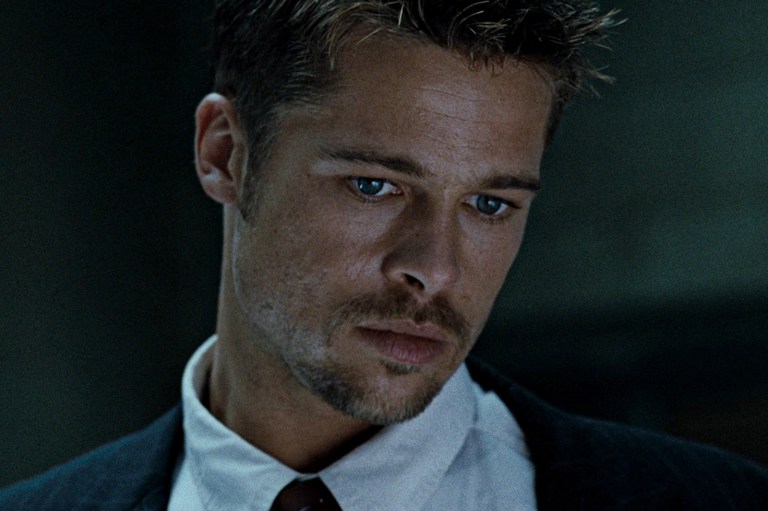
Celebrating 25 Years Of ‘Fight Club’ With The Best Quotes No One Talks About
I am Jack’s defiance and favorite quotes from Fight Club.
The first rule of Fight Club is you don’t talk about Fight Club. At Thought Catalog, we’re rulebreakers, though, challenging the status quo and sticking it to the man at every opportunity. So, we will talk about Fight Club – thank you very much – specifically all the best quotes from David Fincher’s 1999 adaptation of Chuck Palahniuk’s seminal novel.
Can you believe it’s been 25 years since Fight Club hit theaters? Starring Brad Pitt as Tyler Durden and Edward Norton as the unnamed Narrator, the film was a surprising box office bomb and didn’t receive a lot of love from fans or critics upon its release. However, in the years since then, the world came to its collective senses and Fight Club confirmed its rightful place as a bona fide cult classic and much-needed addition to any cinema connoisseur’s collection. In celebration of its quarter-century birthday, let’s put up our dukes and explore the best quotes from this thought-provoking and sometimes satirical film.
“The things you own end up owning you”
Oh, boy. This quote from Tyler Durden hits hard, especially in the age of consumerism and the shackles of credit. He points out how people rush to own material items, but these items end up “owning” people instead. Think about vehicles, or even houses, as an example: People want to buy these big purchases, but they end up working their entire lives to pay off these major expenses. So, who owns who here?
“This is your life and it’s ending one minute at a time”
Fight Club establishes itself as a 139-minute existential crisis. It showcases how so many people become pedestrians in their own lives as they sit and twiddle their thumbs in an endless comfort zone. Yet, this doesn’t change the fact that every second that passes after someone’s birth is closer to the end of someone’s life than the second before. For the Narrator, this is an eye-opening realization that time is a finite resource and life doesn’t stop for anyone to catch their breath and figure out what to do next.
“You’re not your job”
Sure, Tyler Durden’s Project Mayhem is extreme, violent, and not the right way to go about things. That being said, his rallying call to his disciples raises valid points about the problematic way in which people view themselves and others – especially in terms of how the capitalist world determines someone’s value. As he says, “You’re not your job. You’re not how much money you have in the bank…” Too often, people equate success with what they achieve in their careers, but that couldn’t be further from the truth.
“It’s only after we’ve lost everything that we’re free to do anything”
No one likes to think about hitting rock bottom. It’s supposed to be an empty and lonely place of despair and sorrow – the lowest of the lows. However, Tyler Durden posits an interesting alternative through this quote. Maybe rock bottom should be viewed through a different lens. Instead of the hopeless nothingness, it’s a blank canvas. A clean slate. It’s the opportunity to write the story that you want to tell to the world.
“I can’t get married – I’m a 30-year-old boy”
A less-pronounced theme of Fight Club revolves around the fact that most people feel unprepared to face the world and make critical decisions. In essence, we are all children, looking to others around us for guidance and advice of what we should do next. In this specific quote, the Narrator describes himself as a 30-year-old kid; it’s a sentiment that most people can relate to, as there’s almost a sense that we’re not ready to be adults. In fact, what is an adult in the first place?
“Stop trying to control everything and just let go. Let go!”
From an early age, many people are taught about the importance of preparedness and following a path. Go to school, study hard, get a steady job, buy a house with a white picket fence, and have two and a half children. Fundamentally, these are the mythical “milestones” that individuals need to hit to be considered successful and functioning members of society in the American Dream. Yet, the reality is, not all these milestones bring joy or happiness – nor do people hit them at the same time, or even at all. By constantly trying to control the direction of one’s path in life, or what should happen, only brings stress and worry. Tyler Durden suggests letting go to be the solution to a more carefree lifestyle – and glowing skin, presumably.
“Is Tyler my bad dream? Or am I Tyler’s?”
The revelation that Tyler Durden exists only in the Narrator’s head is a pivotal moment in Fight Club. At this point in the movie, the Narrator struggles to differentiate who is in actual control of his life: Tyler or himself? Undoubtedly, the creation of Tyler acts as a mechanism for the Narrator to escape from the banality of everyday life; it’s a freedom and empowerment to find a sense of purpose. However, there’s no dispute that Tyler’s methods are dangerous and illegal. Regardless, the Narrator remains unsure of who really is the bad guy in this story – the one who defies societal norms or the conformist.











